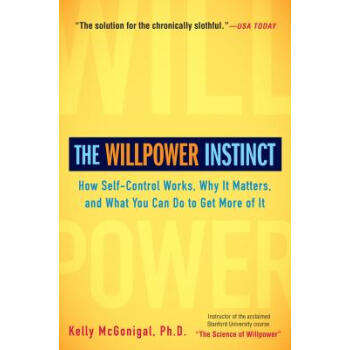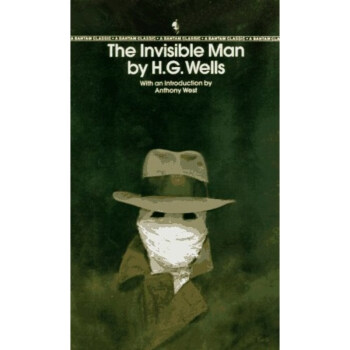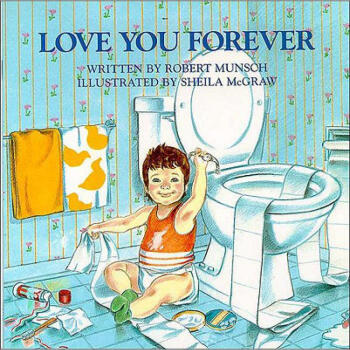![Junie B. Jones Smells Something Fishy No.12[琼斯闻到鱼腥味] [平装] [6-9岁]](https://pic.windowsfront.com/19015732/56cfafccN2d810ee7.jpg)

具体描述
内容简介
Junie B. Jones has a pet day problem! There's going to be a pet day at school, only guess what? No dogs allowed! And that's the only kind of pet Junie B. has! If Mother and Daddy won't buy her a new pet, Junie B. will just have to find one on her own. Like maybe a jar of ants. Or a wiggly worm.作者简介
Barbara Park is one of today's funniest, most popular writers for middle grade readers. Her novels, which include Skinnybones, Mick Harte was Here, Maxie, Rosie, and Earl-Partners in Grime, Rosie Swanson: Fourth-Grade Geek for President, and The Graduation of Jake Moon have won just about every award given by children. She is also the author of the hilarious and bestselling Junie B. Jones chapter books. Recent books about Junie include Junie B., First Grader (at last!) and Junie B., First Grader: Boss of Lunch.Ms. Park earned a B.S. degree in education at the University of Alabama. She lives in Arizona with her husband and has two grown sons.
精彩书评
"Park is truly a funny writer. Although Junie B. is a kindergartner, she's sure to make middle graders laugh out loud."——School Library Journal
精彩书摘
Grandma Miller quick took back the worm."For heaven's sake, Junie B. What in the world is the matter with you? It's just a baby earthworm. Look how teeny he is. This little fellow would make a wonderful pet."
I did a huffy breath at her.
"Yeah, only worms cannot be pets, Grandma. 'Cause pets have fur so you can pet them. And worms just have ooey gooey skin."
Grandma Miller looked surprised at me.
"Don't be silly," she said. "Not all pets have fur. My bird Twitter doesn't have fur, and he's a pet. And goldfish don't have fur. And hermit crabs don't have fur. And lizards don't have fur. And-"
I covered my ears with my hands.
"Okay, okay. Enough with the fur," I said. "But worms don't have eyes or ears, either. And they don't have legs or tails or feet or necks. And they don't chirp or bark or cluck or meow. And so what kind of stupid pet do you call that?"
Grandma Miller thought and thought.
Then she smiled real big.
"I'd call that the kind of pet that won't wake up the neighbors or sniff the company or scratch himself silly," she said back.
After that, she stood up. And she gave the baby earthworm to Mother.
"I'll leave this little guy with your mother for now," she said. "You can think it over and see if you want to keep him. I'll check back with you later."
Then she kissed me on my head.
And she grabbed the ice chest.
And she hurried out the door.
Mother looked at the baby worm in her hand. "My goodness. You are a little one, aren't you?" she said.
She got an empty mayonnaise jar out of the cabinet.
Then she poked holes in the lid for air. And she put the baby worm inside of it.
Mother looked at him in there.
"You don't even know where you are, do you, little fella?" she said. "I bet it's kind of scary in there all by yourself."
I turned my back on her. 'Cause I knew what she was up to, that's why.
"You can't make me like him, Mother," I said. "Nobody can make me like him."
"Of course not," said Mother. "But just because you don't like him, doesn't mean I can't like him."
She talked to the worm some more.
"Hmm. Maybe you'd be happier if you had some dirt to crawl around in," she said. "Let's go outside and see what we can do."
After that, Mother put on her jacket. And she went outside. And she digged in the dirt from her garden.
She came inside and showed me the jar.
It looked kind of cute in there.
There was a rock and a stick and a dandelion and some clovers.
I peeked at the baby worm.
He peeked back, I think.
"Yeah, only I still don't like him," I said kind of softer.
I rocked back and forth on my feet.
"And anyway... even if I did like him, I don't know what worms eat. And so what would I even feed that guy?"
Mother ruffled my hair.
"Are you kidding? That's the best part about worms," she said. "They get all of their food right from the soil. You don't have to feed them anything at all."
Just then, my baby brother started to cry.
"Uh-oh. The baby's crying," she said. "Here. Take this."
Then she quick handed me the jar.
And she runned right out of the room.
用户评价
这本书的封面设计简直是视觉的盛宴,那种鲜艳的色彩搭配和略带夸张的插画风格,一下子就抓住了我的眼球。我记得我是在一个阳光明媚的下午,在书店里无意间翻开它的,那一瞬间,我感觉自己像是被一股无形的力量拉进了故事里。书页的纸张质量非常棒,拿在手里有一种扎实而舒适的触感,翻页时发出的那种轻微的“沙沙”声,对我来说简直就是一种享受,仿佛每一次翻动都在为接下来的冒险做着铺垫。我特别欣赏作者在字体选择上的用心,那种圆润又带着一丝俏皮的字体,完美地契合了目标读者的年龄段,即便是刚开始尝试自主阅读的小朋友,也能轻松地跟上故事的节奏。而且,装帧工艺的处理也看得出是下了功夫的,即便是经常被我“粗暴对待”——比如夹在书包的最底层,或者被不小心洒上几滴果汁——它依然能保持得相对完好,这对于一本高频阅读的儿童读物来说,是非常重要的品质。整体来看,这本书的物理形态本身就是一种邀请,它在无声地对我说:“快打开我,精彩的故事正在里面等待着你。”
评分角色塑造是这部作品最让我印象深刻的亮点之一。每一个人物,即便是戏份不多的配角,都拥有自己鲜明的个性标签,他们绝非是扁平化的符号,而是活生生、呼吸着的个体。主角的那些古灵精怪的想法、偶尔的小小的“失误”和随之而来的真诚反思,都让人感觉无比的真实和亲切。我仿佛能看到我家认识的某个小朋友身上也有类似的影子,这种强烈的代入感,是优秀儿童文学作品的标志。作者没有回避孩子们在成长过程中会遇到的那些小小的挫折、误解甚至是委屈,而是将它们温和而有力地呈现出来,并引导孩子去思考如何以更成熟的方式去处理。更妙的是,即便是反面角色的行为逻辑,作者也进行了合理的铺陈,没有简单地将他们脸谱化,这为孩子们提供了观察人性和理解差异的绝佳视角。这种复杂而又易于理解的角色群像,极大地丰富了故事的内涵。
评分这本书在语言运用上展现出了一种令人惊喜的活力和精准度。它不是那种故作高深或者刻意使用简单词汇的“低幼化”写作,而是巧妙地在高频使用的基础词汇中,穿插了一些非常形象生动的比喻和拟人化的表达。比如,当我读到描述某个角色心情的词句时,那种画面感立刻就冲了上来,仿佛作者直接把那个情绪“画”在了我的脑海里。对话部分更是精彩,充满了孩童特有的那种直率和略带夸张的语气,读起来朗朗上口,我甚至忍不住小声地模仿其中的一些对话片段。这种语言的音乐性和节奏感,对于正在学习和模仿语言的孩子们来说,是极佳的范本。而且,我注意到作者在某些地方使用了重复的句式或者特定的口头禅,这不仅增强了故事的辨识度和趣味性,也帮助孩子们更好地记忆和理解特定情节的发展脉络,是一种非常有效的阅读策略的体现。
评分总的来说,这本书带给我的阅读体验是多层次的愉悦和收获。它不仅仅是提供了一个打发时间的消遣读物,更像是一次充满启发性的思维训练课。在阅读过程中,我发现自己一直在不自觉地进行着“推理”和“假设”,试图去预判故事的走向,这极大地激活了我的批判性思维能力。对于目标年龄段的读者来说,这种引导式的、鼓励主动参与的叙事方式是极其宝贵的。它教会了孩子们如何在既定的规则下寻找突破口,如何在看似混乱的线索中梳理出核心问题,以及最重要的一点——如何在压力之下保持乐观和幽默感。这本书成功地将教育意义内化于故事趣味性之中,没有丝毫说教的痕迹,完全是“润物细无声”的典范。阅读结束之后,那种意犹未尽的感觉,驱使着我立刻想要去寻找系列的下一本,期待能继续跟随这些熟悉的面孔,探索他们接下来会遇到哪些新奇又引人入胜的挑战。
评分故事情节的展开简直是教科书级别的巧妙布局,作者对节奏感的把握拿捏得恰到好处,就像一位经验丰富的指挥家在掌控着一场精彩的交响乐。每一个小小的冲突点都设置得如此自然,既能引发孩子们强烈的好奇心,又不会因为过于复杂而让年幼的读者感到困惑。我尤其欣赏作者如何通过看似日常的场景,巧妙地植入一些关于友情、勇气和解决问题的关键主题。叙事视角非常贴合小读者的心理活动,那种直接、天真又充满逻辑跳跃性的思维方式,让我这个成年读者都能偶尔会心一笑,感叹“对啊,小孩子就是这样思考的!” 在推进剧情的时候,作者非常懂得“留白”的艺术,总是在关键时刻戛然而止,迫使读者迫不及待地想知道下一秒会发生什么,这种悬念的设置非常高明,完全没有成人小说中那种故作姿态的拖沓。读完一个章节,我常常会停下来,在脑海中快速地重演刚刚发生的片段,那种清晰的画面感和流畅的逻辑链条,证明了作者在构建故事世界观时的严谨性。
评分很好
评分这个系列还有10本不知道京东什么时候进货。
评分经典桥梁书,非常适合女孩子,先囤着了!
评分非常好的章节书,适合有一定基础的孩子阅读。
评分这个系列还有10本不知道京东什么时候进货。
评分[QY]
评分喜欢,会一直在京东购书 发货真是出乎意料的快,昨天下午订的货,第二天一早就收到了,赞一个,书质量很好,正版。独立包装,每一本有购物清单,让人放心。帮人家买的书,周五买的书,周天就收到了,快递很好也很快,包装很完整,跟同学一起买的两本,我们都很喜欢,谢谢!今天家里没有牛奶了,我和妈妈晚上便去门口的苏果便利买了一箱牛奶和一点饮料。刚好,苏果便利有一台电脑坏了,于是便开启了另外一台电脑。因为开电脑和调试的时间,队伍越排越长。过了8分钟,有一个阿姨突然提出把键盘换了,这样就能刷卡了。我妈妈就在旁边讲了一句:“键盘
评分听着出色音频
评分京东外文书,第一赞的就是价格,同意的一本书,京东最好折扣时,只需别的网店的一半,这套书,最让我郁闷的是,花了个高价在别的店买了10几本回来.为什么我没等到京东价啊
相关图书
本站所有内容均为互联网搜索引擎提供的公开搜索信息,本站不存储任何数据与内容,任何内容与数据均与本站无关,如有需要请联系相关搜索引擎包括但不限于百度,google,bing,sogou 等
© 2026 book.coffeedeals.club All Rights Reserved. 静流书站 版权所有

![The Autobiography of Martin Luther King, Jr.[马丁·路德·金自传] [平装] pdf epub mobi 电子书 下载](https://pic.windowsfront.com/19030514/rBEhVVKqds8IAAAAAAj2FMNqReAAAG1hAGmL4wACPYs978.jpg)
![Home for a Bunny (Little Golden Book) [精装] [2-5岁] pdf epub mobi 电子书 下载](https://pic.windowsfront.com/19031817/2be9ce07-e061-482d-b86a-e7f8fa637ee0.jpg)
![Who Moved My Cheese? For Kids谁动了我的奶酪 [精装] [4岁及以上] pdf epub mobi 电子书 下载](https://pic.windowsfront.com/19043694/a5116dce-4a30-4aa3-a9ab-34b15a5e7323.jpg)
![The Wind in the Willows 柳林风声 英文原版 [平装] [18岁及以上] pdf epub mobi 电子书 下载](https://pic.windowsfront.com/19128230/rBEHZVAuBYcIAAAAAABIWdWY4bIAAAClwBdTnAAAEhx649.jpg)
![Wee Sing in the Car (Book + CD) [平装] [3-7岁] pdf epub mobi 电子书 下载](https://pic.windowsfront.com/19139336/rBEQWFE0S0gIAAAAAAXkPBkl5DMAABauQIJri0ABeRU891.jpg)
![The Toyota Way: 14 Management Principles from the World's Greatest Manufacturer丰田模式:精益制造的14项管理原则 [精装] pdf epub mobi 电子书 下载](https://pic.windowsfront.com/19160073/rBEhVFKLOtwIAAAAAAe0OKUIuXMAAFrjwIe_LwAB7RQ361.jpg)
![Three Men in a Boat (Collins Classics) 英文原版 [平装] pdf epub mobi 电子书 下载](https://pic.windowsfront.com/19269700/rBEHZ1BO2rwIAAAAAABF3_aLb8wAABISAKm-QUAAEX3133.jpg)
![Foundation and Earth [平装] pdf epub mobi 电子书 下载](https://pic.windowsfront.com/19292547/rBEhWFJYFQ4IAAAAAABVXUYY3JsAAECkgK69RMAAFV1023.jpg)
![Batman 75th Anniversary Box Set 英文原版 [精装] pdf epub mobi 电子书 下载](https://pic.windowsfront.com/19527070/5462b5a2Nef8c4261.jpg)

![The World'S Heritage (Fourth Edition) 英文原版 [平装] pdf epub mobi 电子书 下载](https://pic.windowsfront.com/19573870/56a6ddf2N1778a5b5.jpg)
![Bear Called Paddington, A 英文原版 [平装] pdf epub mobi 电子书 下载](https://pic.windowsfront.com/19574418/575f9577Nbcd41152.jpg)
![Judy Moody and Friends: Triple Pet Trouble [平装] [04--06] pdf epub mobi 电子书 下载](https://pic.windowsfront.com/19577276/56f25efaNfd99827e.jpg)
![Fancy Nancy: It's Backward Day! [平装] [04--08] pdf epub mobi 电子书 下载](https://pic.windowsfront.com/19640588/575fbef0N7a33a5a1.jpg)





